There’s a scene in the movie Jerry Maguire – who’s about to get married – where a slew of Jerry’s ex-girlfriends are on tape all saying the same thing: “He cannot be alone…”
Our world feels a lot like that too. Alone? Turn to your smart phone or go online. Go to a sports game, or a bar, barbeque or party. CoronaVirus has changed all that. It’s also challenging us to see the world beyond the superficial, beyond the surface stuff.
If proper true crime reminds us of one thing it’s that the most important things are hidden, that they exist below the surface and are invisible. The CoronaVirus is a reminder how dynamics and relationships, and behavior patterns can be linked in a myriad of ways. It’s a reminder how incidental actions like touching one’s nose or face can have lifechanging consequences.
For the first time in living memory our common enemy isn’t human, or any particular group of humans. Most of us know The Infected aren’t our enemy either, even if – God forbid – one us forms part of that select [and growing] group. Because once we do, what we will want is to be treated with care and compassion.
Earlier today the author on religious matters, Karen Armstrong, spoke about coping with loneliness during CoronaVirus. She said something that resonated with me:
“I’m used to being alone. I’m a writer.”
I know the feeling too, especially after six years writing over 90 books – that’s almost constant writing, which means a fairly isolated lifestyle compared to most people. When CoronaVirus started manifesting in a big way and there was talk of isolating oneself and social distancing I found this ironic since effectively that has been my lifestyle for the past 6 years. 2020 had been my Year of Transition out of the strictly writing vocation, and certainly at the start of the year I was flirting with the idea of visiting the USA, and perhaps the Himalayas on the way back. When I heard about the CoronaVirus I thought Tahiti – in the middle of the Pacific in French Polynesia – might have to do. But alas, no one is really going anywhere except perhaps the Olympians, and even that seems a stretch at this point.

I do want to echo what Armstrong said, that it is important that we develop the resilience and wherewithal to be alone. We don’t need to be alone for years [as I have], or as some authors tend to be, but we do need to develop the capacity to be alone with ourselves. After all, when we die, we do so – essentially – alone. We go into death, whether because of CoronaVirus or something else, we go on that journey alone. Being alone is a part of life too.
Armstrong makes another good point in her interview with Amanpour about living in terror. Many of us, including in the true crime community, tend to think of fear as an intellectual concept. We know what it is. Of course there’s a world of difference when someone else is afraid [afraid of getting divorced, afraid of social death, afraid of losing their job, their lover or their idea of everything they’ve accumulated] and when it’s you. We see the manifestation of this fear we ourselves feel when others feel the same fear at the same time.

It’s no accident that there have been contests, bickering and fisticuffs over toilet paper. Death is shit, and we are reluctant to come into direct contact with either. We’re looking for some sort of barrier to protect ourselves – even if it’s paper thin it’ll do.
The experts provide some contemporary insight into why this happens:
“Stocking up on toilet paper is … a relatively cheap action, and people like to think that they are ‘doing something’ when they feel at risk.”
This is an example of “zero risk bias,” in which people prefer to try to eliminate one type of possibly superficial risk entirely rather than do something that would reduce their total risk by a greater amount.
Hoarding also makes people feel secure.
True Crime Rocket Science has a simpler assessment. Buying toilet paper is a symptom of our fetishized society, and as such, a fetishized response. What is a fetish? It’s a very narrow area in which we seize control over something. As the assessment above notes, this is to allay anxiety. Compare it to an introvert who has very little experience with the opposite sex. Instead of aiming for the vagina, because of his fear, he engages instead with women’s shoes. These are safe, can be controlled, and can be interacted with in a secure environment. Of course, the fetishist is really just kidding himself, and this behavior tends to be that of a coward who is running away from the world at the same time he thinks he is engaging deliberately and purposefully with it.
Guns and ammunition is another version of this, and we’ve seen panic buying by preppers in the same way as folks buying toilet paper. Bullets are also not the ideal weapons to treat CoronaVirus. In our sexual example it’s like buying viagra and condoms in a leper colony. What you really want to do is stay home and concentrate on eating right, sleeping right and taking care of those around you. Buying a gun may make you feel secure but if we’re honest, everyone buying guns [or toilet paper] achieves almost nothing in terms of immunity against a sweeping virus.
We’re not used to fear or dealing with it. We don’t have much practice in our sanitized society dealing with very serious things – like World War. The last time the world ground to a halt during a major war was over 70 years ago. This pandemic will start to look and feel a lot like a war footing. There will be a time to hunker down, to stockpile, to batten down the hatches and – hopefully – to come out of our respective shelters into the “New Reality” that awaits us.
CoronaVirus reminds us – influencers and nobodies alike – that we are both gods and worms. Something invisible reduces all of us to the same trembling card houses. The reality is that anxiety is a function of resilience, and resilience is a function of preparation, ego and self-esteem. All of these depend to what extent we are not dependent on something. Can we stand alone for a time? How well can we stand alone?

Karen Armstrong relates this widespread fear that we’re not used to being commonplace among the poor, the disenfranchised and the downtrodden. Possibly the first wave of the pandemic will sweep lightly over Europe and America, and by lightly I mean with fairly predictable results. The real terror awaits those swarms of people who don’t have houses but shacks, who cannot afford to stockpile anything, and live and move cheek by jowl. These people don’t have the option of sequestrating themselves. The true heroes are those who will enter these death zones trying to save lives.

Although we are entering a period of unprecedented darkness and wrenching change, 2020 was also the year in which many in the world realized the climate was seriously out of whack, but none of us really resolved to do anything about it.
Nature, instead, has interceded on our behalf. Had world governments decided on the most austere methods to mitigate climate change they couldn’t have come close, not even half as close as the measures in effect right now. In a very weird way we’re participating in an ominous experiment without really knowing it. Want to know what that experiment is?
Over the next few months we will find out whether stopping the world’s economy – almost to do a dead stop – will have an appreciable effect on cooling down the fever of the world’s climate. Let’s hope it does.

If it does we will have some idea about a) what’s possible when necessity exceeds political will or civil practicalities and b) how much it’s going to take to turn back the climate to where it needs to go. Until now we’ve had virtually no data on whether strong mitigation will work, and how effective it might be. Hold your breath. We’re about to find out.
Watch the interview with Karen Armstrong by Christiaan Amanpour on CNN here.
Read My CoronaVirus Diary updated daily only on Patreon.
















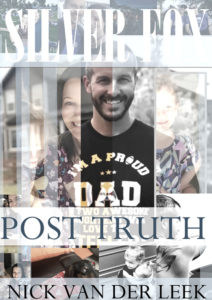
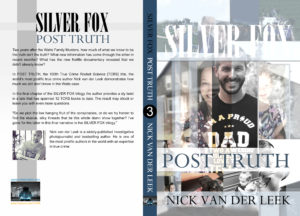

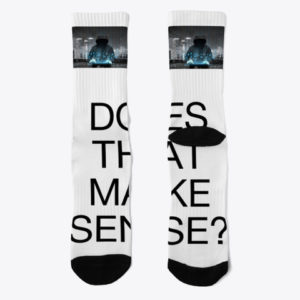

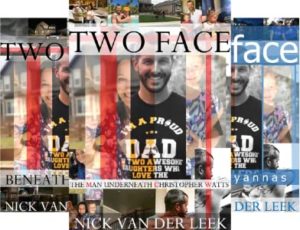



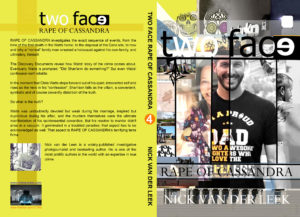

Recent Comments